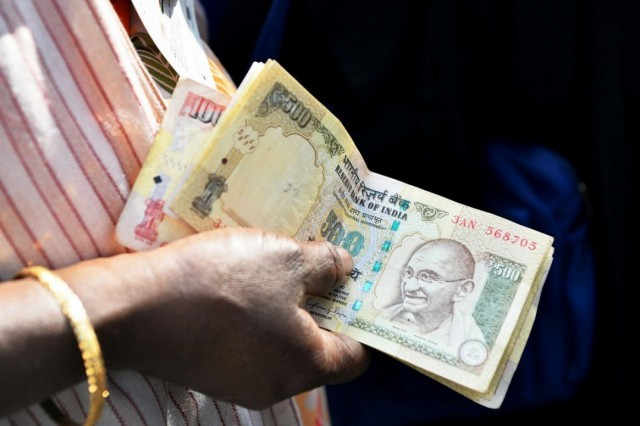Everything is not for sale. However, it seems that the laws of the market, little by little, invade domains that until now were forbidden to them: friendship, justice, illness and even love. Michael Sandel points out these drifts and wonders how we can save ourselves from the corrosive effect of money.

Since the 1980s, according to the author the principles of the market economy have conquered protected domains such as culture, sport or education. The book notes this tendency by telling us about sometimes amusing but often frightening facts, which appear in newspapers or in scientific papers. We thus know that we can afford to go on a rhino hunt, to compensate for the emission of CO2 produced by our London-New York flight by donating to a Mongolian wind farm on the British Airlines website, that we can go to the website theperfecttoast.com to get our discourse for our wedding ceremony, or find a Chinese company to write a personalized apology letter. We only need to pay. We also found out that a charitable association provides money for young drug addicts to be sterilized in North Carolina, or that life insurance for employees taken out without their knowledge has earned about $300,000 for a supermarket chain. News that may seem anecdotal and repetitive, but Sandel judges symptomatic of our time.
The separation of spheres: a matter of justice
The book does not follow the constant that money is now law. He opposes the need to protect certain objects and relationships in a moral sphere directed by norms other than those of the market. Sandel has built their thinking from a "communitarian" critique, entrusting politics with the mission of promoting a decent life and not just guaranteeing rights. In this sense, his diagnosis evokes another philosophical tradition: the Marxist critique of the "commodification of the world", accused of reducing relations between people to the level of relations between goods. When market logic is applied to non-material goods (procreation, immigration policies, criminal justice) Sandel tells us, we calculates individual preferences without taking into account the value of those preferences or preferred goods. When Peanut Butter cloaks itself with 5,000 jars of peanut butter "Skyppy" to attract publicity, we are tempted to deplore it, in this same Marxist vein, the disappearance of culture caused by the incessant accumulation of consumable objects. But the purpose of the book is not to condemn the violence of the social relations contained in the mercantile economy or to reverse the illusion on which the happiness of consumer societies rests.
It seems that the laws of the market, little by little, invade domains that until now were forbidden to them: friendship, justice, illness and even love
Sandel is the author of significant papers on distributive justice and this is being felt. He is primarily interested in the principles that govern the distribution of resources, services, and rights. All of which Michael Walzer calls social goods: "The totality of social goods is, so to speak, a distributive sphere within which only certain criteria and devices are appropriate". Sandel seems to start from this theoretical framework when he claims to separate clearly the criteria of the mercantile sphere and of the moral, defined by the intrinsic value that the members of a community should agree to certain goods and certain actions. Justice, understood as an adjustment between the norms and the nature of the goods it manages, is threatened when the framework is imposed in areas that do not correspond to it. This is what happens when parents buy admission Princeton for their children. They replace the distributive principle with another, in this case the talent market.
This book wants to set boundaries, and all the stories it tells resonate as alarms triggered by its numerous transgressions. The first chapter is explicitly inscribed in a reflection on justice when buying in the market according to concurrent distributive principles, such as waiting your turn in queues. This mode of sharing of goods, "first come, first served", has the advantage of being more equal than others. For example, a queue starts on the morning in front of the New York City's Public Theatre box office, where free tickets are distributed to watch a Shakespeare play that same night in Central Park. The representations are in high demand, and theatre chooses as a criterion of distribution to the assembled queue, less discriminatory and more legitimate than for money. However, the New York Daily News notes that those who do not want to queue can find someone on Craigslist who queues for them for $125. These paid-for "queuers" are commonplace at airports, amusement parks and even in some hospital emergency rooms. In all cases, the ethics of queuing is supplanted by that of the market and money appears as the criterion for distribution where another principle had failed.
These examples invite us to discuss the proper criteria for the distribution of goods. Should we let the market act, favour the most patient, reward the meritorious? We could oppose a theory attempting to correct the inequalities produced by these criteria, stating that finally it is the richest who will have access to theatre, even if it is free, and that they will send their children to the best universities. But Sandel seems to avoid a reflection on justice when it comes to certain goods. For example, if we refuse to apply market laws to the adoption of children, it is not because such thing would not be egalitarian and because the poorest would be forced to sell their children to the rich ones. To respond to the demands of adoption, the market would be more effective than the current system, according to Richard Posner, since adoption agencies, which exercise a near monopoly over the supply of children, are subject to quite strict rules, specifically in their dealings with the biological relatives. The offer available is much lower than the adoption requests on hand, and the agencies arbitrarily select the adoptive parents. This even creates a dearth of children available for adoption and promotes the black market. However, there is a different reason not to leave all this to the mercy of the market. A reason that makes us leave behind the field of justice and enter into the field of morality.
Corruption has a different meaning than that of bribing. To corrupt a good or a social practice is to degrade it, not to consider it at its fair value
The corrosive effect of the market: a moral issue
This distinction constitutes the argument at the heart of the book. The logic of the market would discriminate against people in their access to fundamental goods and rights. This would imply unacceptable situations such as the sale of children or organs as a means of living for the poorest. But letting the market do what it wants is not immoral for this reason. Sandel opposes this first objection of fairness with an argument that is based on the idea of corruption.
"Corruption has a different meaning than that of bribing". To corrupt a good or a social practice is to degrade it, not to consider it at its fair value. When Barbara Harris, founder of the charity "Project Prevention" provides $40 to an HIV-positive Kenyan to sterilize them, this does not corrupt procreation in the sense that it is carried out outside the legal framework, but rather because she treats this woman as a damaged child-making machine and her reproductive apparatus as a means of earning money.
"The objection based on equity is concerned with the distribution of goods. On the contrary, the argument of corruption is concerned with the very nature of the goods and the rules that has to govern them". On one hand, this implies that goods that have this sacred character should be identified, and because of this they should be beyond implementing mercantile logic. This suggests that if the laws of the market are applied to these goods, not simply substituting one distributive principle for another, but rather the object has been degraded. Its nature is altered and its sacred character is taken away. This explains the ambitions that seem to structure the book: to identify these objects and to demonstrate the damage that mercantile rules produce when applied to them.
![]()
Presenting examples and comparing them allows Sandel to accurately establish when we should avoid market effects on a particular object. Kendal Morrison, a New Yorker with AIDS, has sold their life insurance to a Michigan investigator to buy their medication until death, which is considered imminent. Meanwhile, medicine progresses and the treatment keeps him in an almost stable state. He regularly receives a letter from Michigan asking him more and more insistently if he is still alive. What worries us about this story? Its consequences? The possibility for such investors to lobby to curb medical research? Not only this. These methods allow the sick to obtain the money needed to get better, which they could not have done otherwise. Are we shocked at the fact that investors abuse a poor patient? The huge sums wagered in Paris on the death of Margaret Thatcher or Muhammad Ali also bother us. And this happens because life and death are goods that should in themselves be beyond such transactions.
The second investigation reveals the corrosive effect of the market on goods managed and the impact caused by the mercantile principle in the moral sphere. To defend this proposal, Sandel relies mainly on the study of motivations (incentives). Two Israeli economists raise the following question: if high school students are entrusted with the task of collecting money for a good cause, offering the three groups a different reward (the first had no reward, the second being 1% of the sum collected and third 10%), which group would come back with most money? Surprisingly, the group that had no reward, followed by that which was promised 10% and third, the group promised 1%. Similarly, reputable lawyers agree to defend defendants without resources free, but they would never do so for a small sum of money. These reactions reveal that certain motivations elude market logic and that, above all, financial incentive contaminates moral actions. Extrinsic motivations (a reward) are replaced by motives intrinsic to morality. Parents who pay their children's education or to be admitted to a school do not add money to their motivation, they transform it.
The economy in question
The third chapter is devoted to the following thesis: the study of motivations from an economic point of view only responds to market logic. Sandel deplores this effect and accuses the economy of not being specific on moral motivations. Utilitarian functions fail to explain why blood donors are less numerous when they get paid for it. The law of scarcity does not apply to civic virtues. For example, showing evidence of altruism does not end up exhausting a finite batch of moral resources. From an etymological point of view, Sandel criticizes this scientific reductionism. From a moral point of view, it reveals the effects of the economy on our behaviours, specifically when it pretends that the market does not alter the goods that it governs. Sandel argues, on the contrary, that placing a product on the market does not have a neutral effect on the product. This modifies its value and leaves its imprint on social norms, because of what Fred Hirch calls "the commercialization effect", which explains the negative effects of marketing on informal or altruistic exchanges. The pretension of the economy of operating outside the traditional objects of study, specifically our moral actions presupposes that the maximization of our individual profits would always be end result of our behaviour and would have the effect of promoting the mercantile spirit.
Determining whether disinterested actions exist, or particular goods that are intrinsically incompatible with the laws of the market is not enough to identify the principles involved and regulate them
The distinction between these two arguments appears somewhat confused in the book. Is it to show that certain things are beyond the principle of economic utility or put limits on the market in certain areas? Giving priority to the search for usefulness as an explanatory motivation our actions can have a spiritual impact on ourselves and influence our worldview. But to establish that a type of motivation is beyond economic description is not enough to prove the existence of purely moral motivations. What if the student wants to create an image of being a philanthropist among their companions? And what if the attorney is satisfied by the expression of their clients' gratitude when he defends them for free? It is not the failure of the economy to account for the reasons for our actions, which justifies giving value to these acts.
Criticizing economics as a unified discipline is not the most effective way to impose limits on the market. In wanting to protect goods, Sandel raises two issues that need to be emphasised: whether it is or is not a commodity, and should it should never be. Determining whether disinterested actions exist, or particular goods that are intrinsically incompatible with the laws of the market is not enough to identify the principles involved and regulate them. A political community may decide to entrust the management of the resources or the guarantee of the rights to a public power that has the collective interest as its objective, without codifying the nature of non-mercantile goods or moral actions, because that means opposing a market counter-balance and not protecting what is intrinsically beyond the economic laws that apply to it. In any case, it is the work of an economist who has recently been rewarded for having described governance models which are alternatives to the law of the market.










